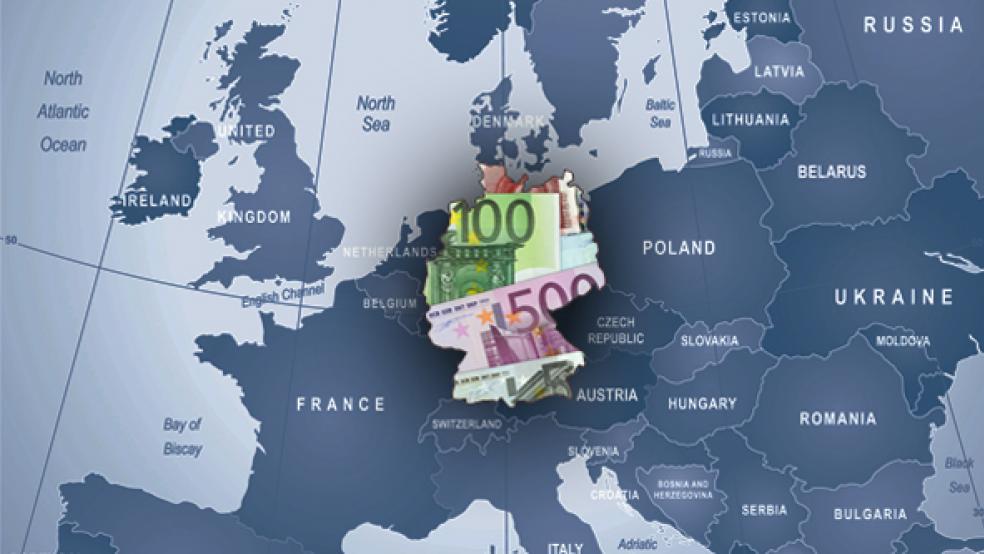Germany has begun to throw its weight behind more drastic measures to guard against the spread of a European debt meltdown, as Chancellor Angela Merkel said Wednesday that she would support a continent-wide plan to recapitalize banks should they appear to need aid.
The region’s banking system appears to be teetering toward a crisis, largely because of concerns over loans that banks have made to governments that are struggling financially. European leaders have in recent days suggested that lenders may have to write off a larger portion of Greek debt than had been part of a plan inked in July. But that could hurt banks’ balance sheets and undermine confidence in the broader system – hence the developing plans to help shore up the banks.
“If there is a common view that banks aren’t sufficiently capitalized for the current market condition,” a system to aid them should be set up, Merkel said in Brussels on Wednesday after meeting with European Commission President Jose Manuel Barroso. She urged that the plan be made quickly.
On Tuesday, France and Belgium pledged to support Dexia, a troubled Franco-Belgian bank that has loaned extensively to governments suffering financial troubles — including Greece, Italy, Spain, Portugal and Ireland. Banks have stopped lending to one another over concerns about banks’ ability to repay even the routine short-term loans that give liquidity to the economy. That tightening credit is constricting the region’s already slow growth.
A second, $145 billion Greek bailout package was proposed in July, with terms that would push investors to write off 21 percent of the loans that they extended to the government in exchange for guarantees that the rest of the money would be paid back. But the value of Greek debt has dropped since the deal was announced, meaning that investors can now purchase it for less than the 79 cents on the euro that the bailout package values them.
That, along with Greece’s inability to meet the already pessimistic fiscal targets set by the International Monetary Fund and other creditors, is pushing politicians to look for new ways to avoid financial crisis.
In Britain on Wednesday, Prime Minister David Cameron told a Conservative Party convention that he felt the looming economic threat was as dangerous now as it was three years ago. He said that he did not plan to slacken his country’s austerity measures even though economic growth has been weaker than expected. The British Office for National Statistics said Wednesday that growth in the country in the second quarter had been nearly flat. The economies of other major countries, including France and Germany, have also been sputtering in recent months.
“The threat to the world economy - and to Britain - is as serious today as it was in 2008 when world recession loomed,” Cameron said.




